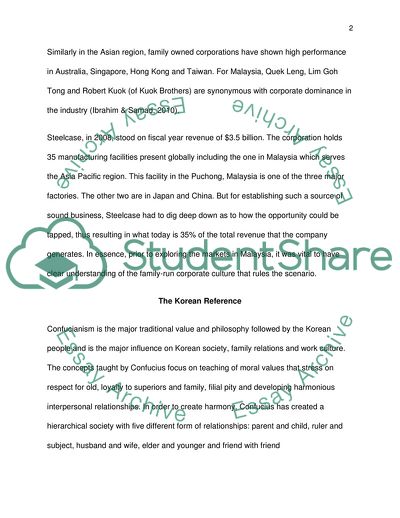Cite this document
(Successful Entry of Steelcase USA in Malaysia due to Cross-Cultural Case Study, n.d.)
Successful Entry of Steelcase USA in Malaysia due to Cross-Cultural Case Study. https://studentshare.org/marketing/1772964-successful-entry-of-steelcase-usa-in-malaysia-due-to-cross-cultural-understanding-family-run-businesses
Successful Entry of Steelcase USA in Malaysia due to Cross-Cultural Case Study. https://studentshare.org/marketing/1772964-successful-entry-of-steelcase-usa-in-malaysia-due-to-cross-cultural-understanding-family-run-businesses
(Successful Entry of Steelcase USA in Malaysia Due to Cross-Cultural Case Study)
Successful Entry of Steelcase USA in Malaysia Due to Cross-Cultural Case Study. https://studentshare.org/marketing/1772964-successful-entry-of-steelcase-usa-in-malaysia-due-to-cross-cultural-understanding-family-run-businesses.
Successful Entry of Steelcase USA in Malaysia Due to Cross-Cultural Case Study. https://studentshare.org/marketing/1772964-successful-entry-of-steelcase-usa-in-malaysia-due-to-cross-cultural-understanding-family-run-businesses.
“Successful Entry of Steelcase USA in Malaysia Due to Cross-Cultural Case Study”. https://studentshare.org/marketing/1772964-successful-entry-of-steelcase-usa-in-malaysia-due-to-cross-cultural-understanding-family-run-businesses.


